Photo Carousel
Carousel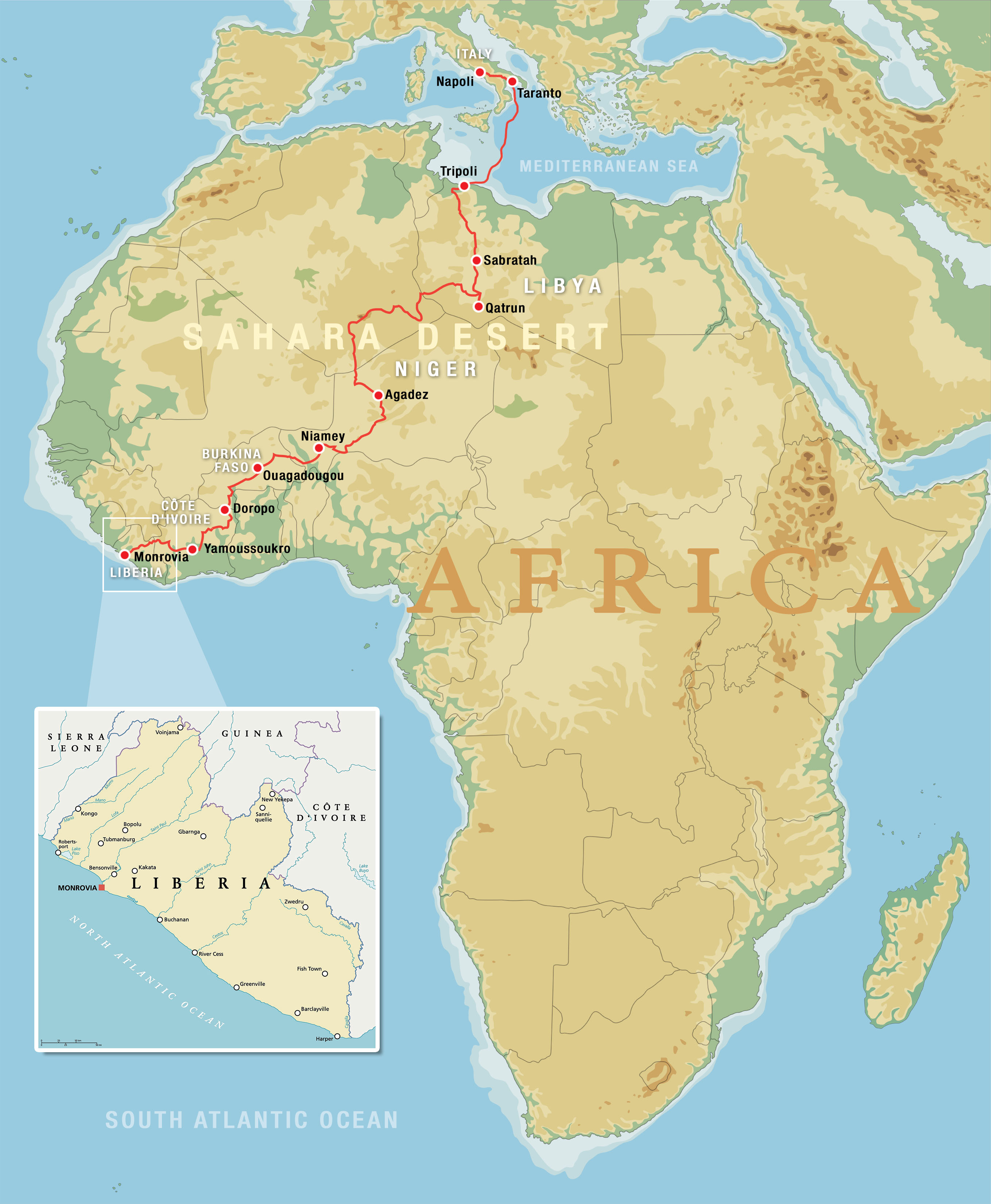
Abraham's Journey
This map shows the grueling route of Abraham's journey of trials, torture, and terror—from his home country of Liberia, across the continent of Africa, through the Sahara desert, and across the Mediterranean Sea.

Map of Liberia, my home country
"I was born in Monrovia, the capital city of Liberia in West Africa. Monrovia is located on the Atlantic Coast at Cape Monsteserrado, one of the 15 counties of Liberia. The largest city in Liberia, Monrovia has a population of about 1 million." (page 1)
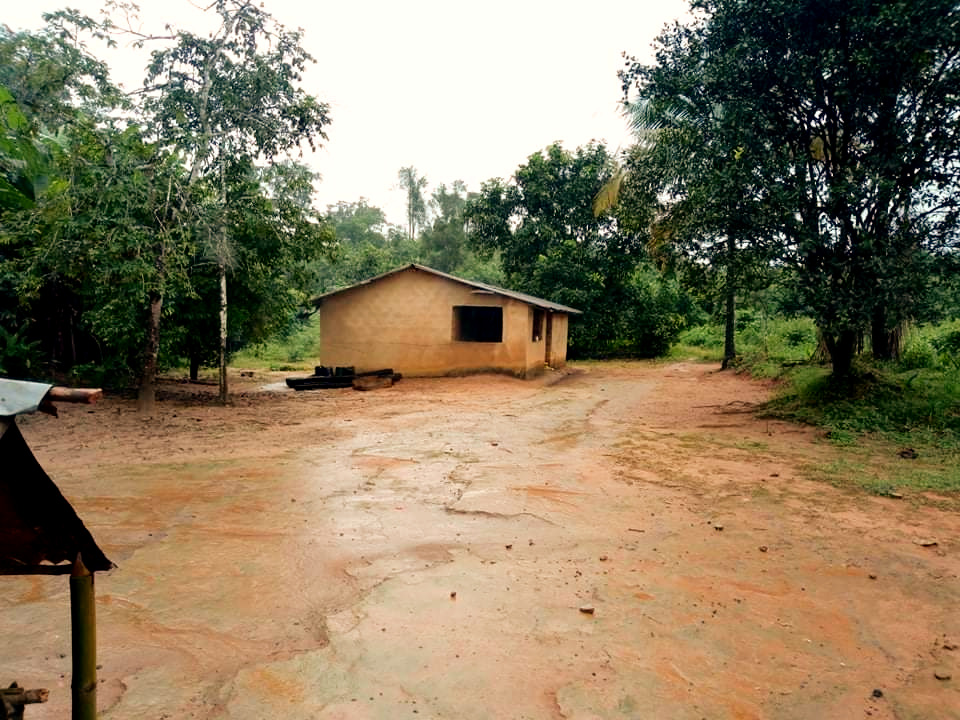
The main road into the village
"In the village, there was no electricity, no roads for cars, and no safe drinking water." (page 14)
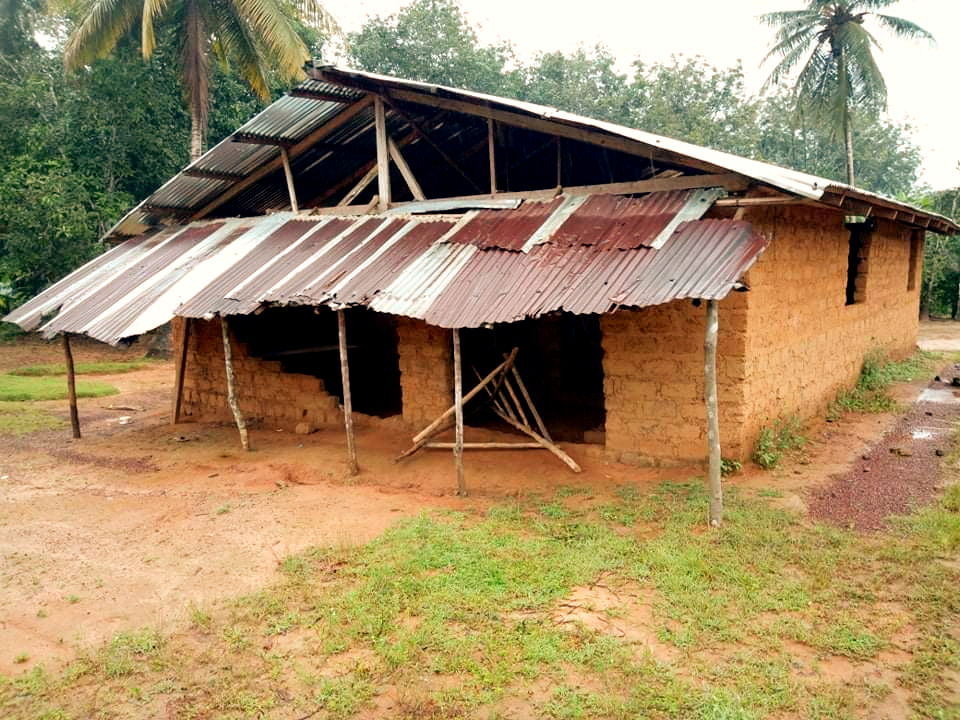
My parents' house under construction
"After eating, about 8 p.m., everyone would already be inside their houses because the village is surrounded with bushes, and darkness falls early. The moonlight was the only source of light we had at night. As most people long for summer, that is how we longed for the moonlight during the dry season." (page 15)
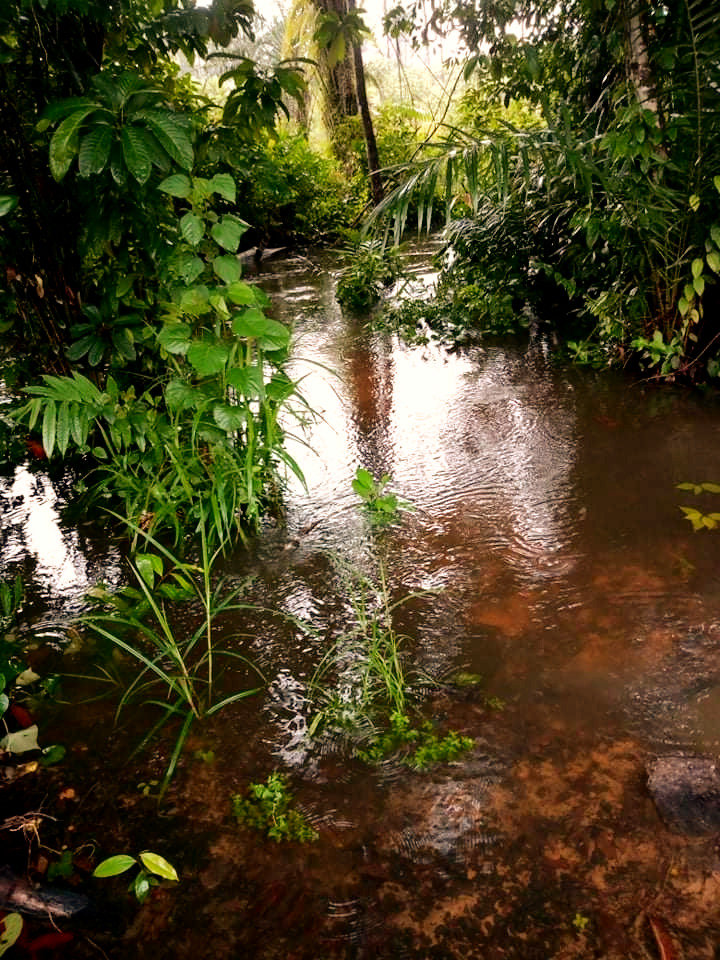
The local water supply
"We normally got our drinking water from the stream, and if the stream went dry during the dry season, we walked about three miles with buckets to get water for drinking and cooking." (page 14)
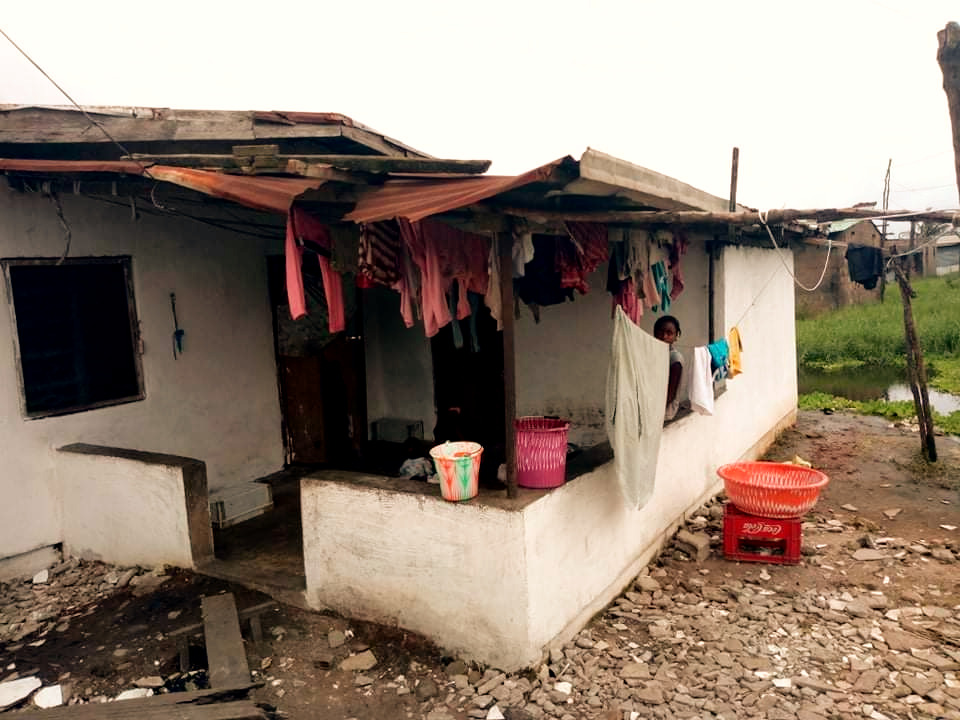
The house of Abraham's Uncle in Kakata
"I was nine years old before I saw anything powered by electricity. This was when my parents sent me to live with my uncle in Kakata. Going to live with my uncle was very difficult for me. It was a moment I never thought would happen." (page 17)
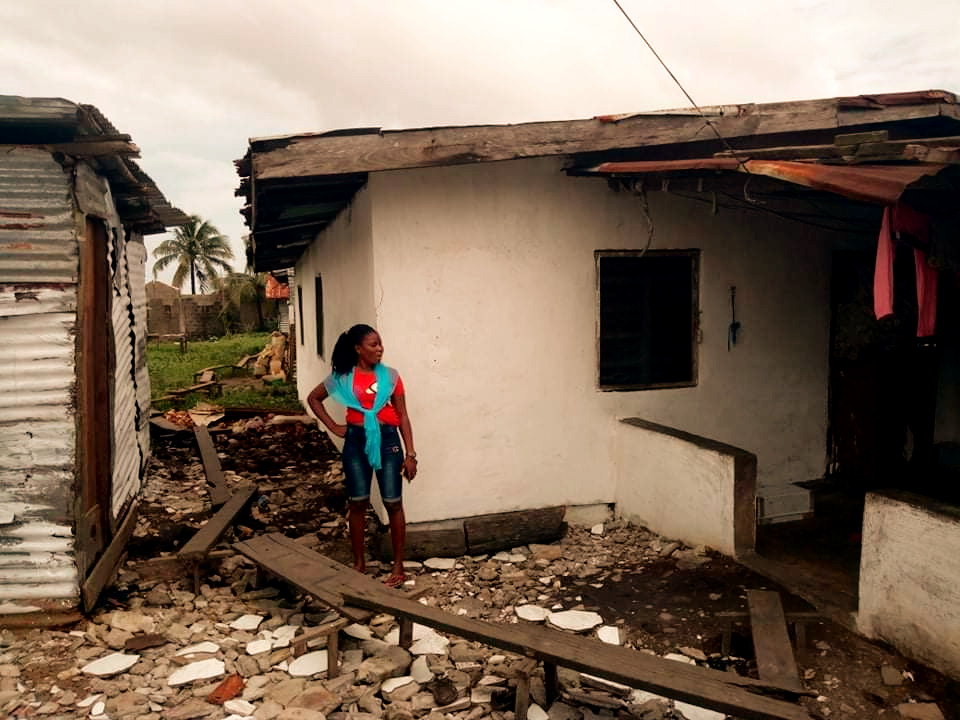
Uncle David's house
"From being a child that was loved and taken care of by my uncle's family, I became like a house slave doing all the chores while their children went to school. Many times, I asked myself why things were happening the way they were. I became afraid, lonely, and cried many times because I was now far from my mom and dad and did not know my way back to the village." (page 21)
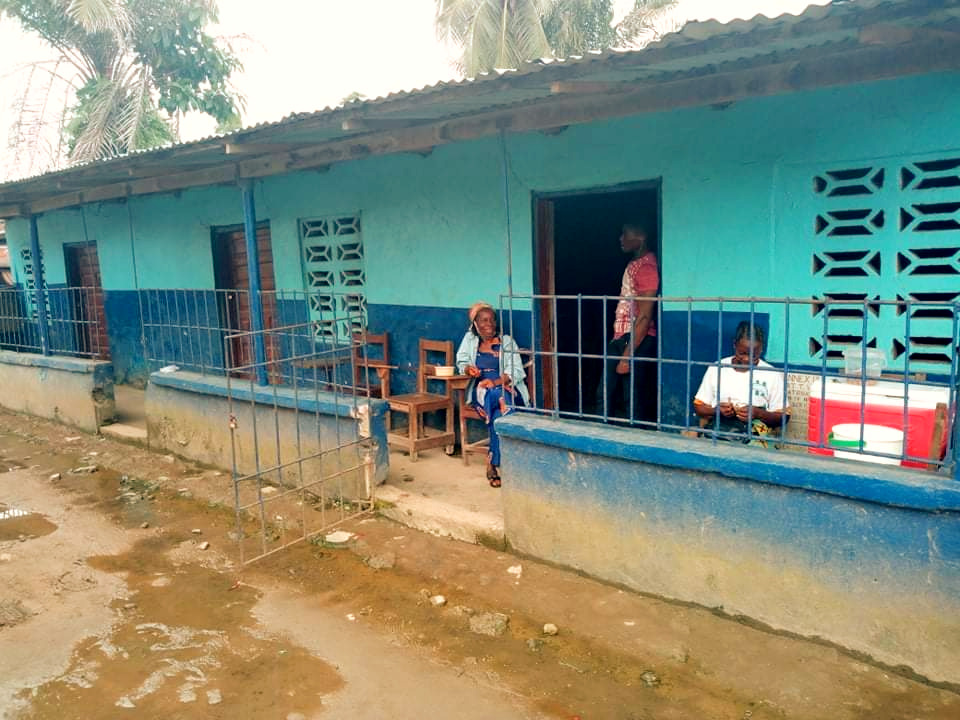
Abraham's school in Kakata
"As we began the journey to Kakata, I was filled with confidence and hope - I thought, at least now I will have the chance to go to school and find a church where I will be taught the Bible more in-depth. I told myself that I will go to school, graduate, learn the Bible, and teach people about God's Word just as Mom had always told me." (page 18)
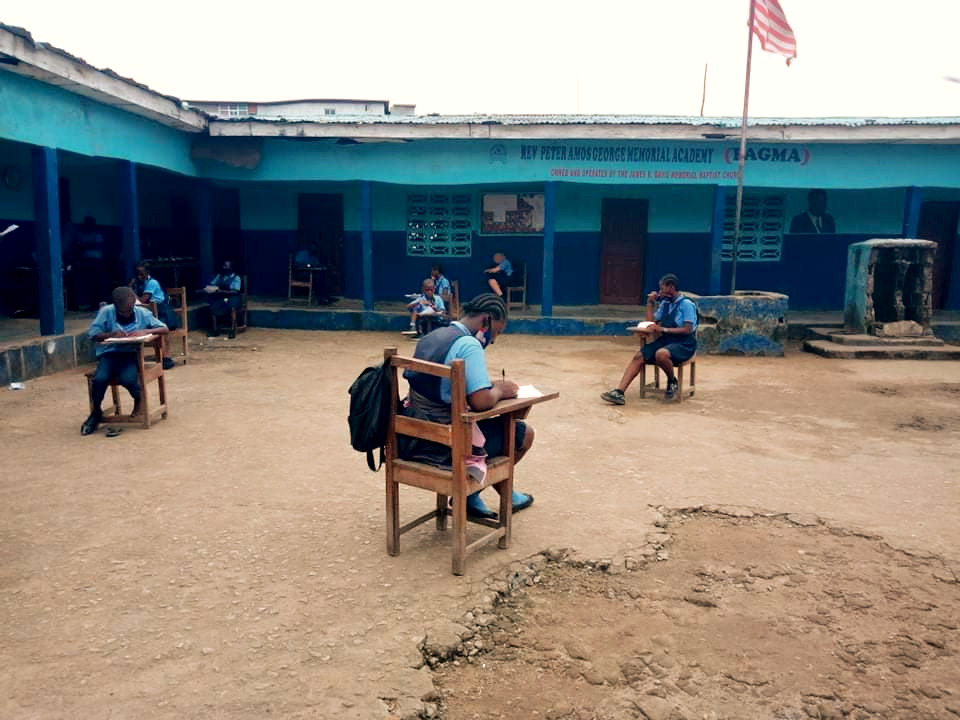
Abraham's school in Kakata
"When I first went to live with my uncle and his family, everything was well. I was welcomed with an open hand and immediately put into school, the “Pentecostal Conqueror High School” in Margibi County, Kakata. With confidence and motivation, I also fully engaged in serving my local church in Kakata. For the first two years things were great, and I was given every necessary attention and care as a young boy." (page 19)

Abraham's school in Kakata
"My uncle, whom I thought would help me achieve my goals, was influenced by his wife, who now saw me as a threat to her own children's education and burden to their family because she was now providing for the home by herself. She had to pay both my school fees and her children's. She wanted to send me back to the village to my parents." (page 20)
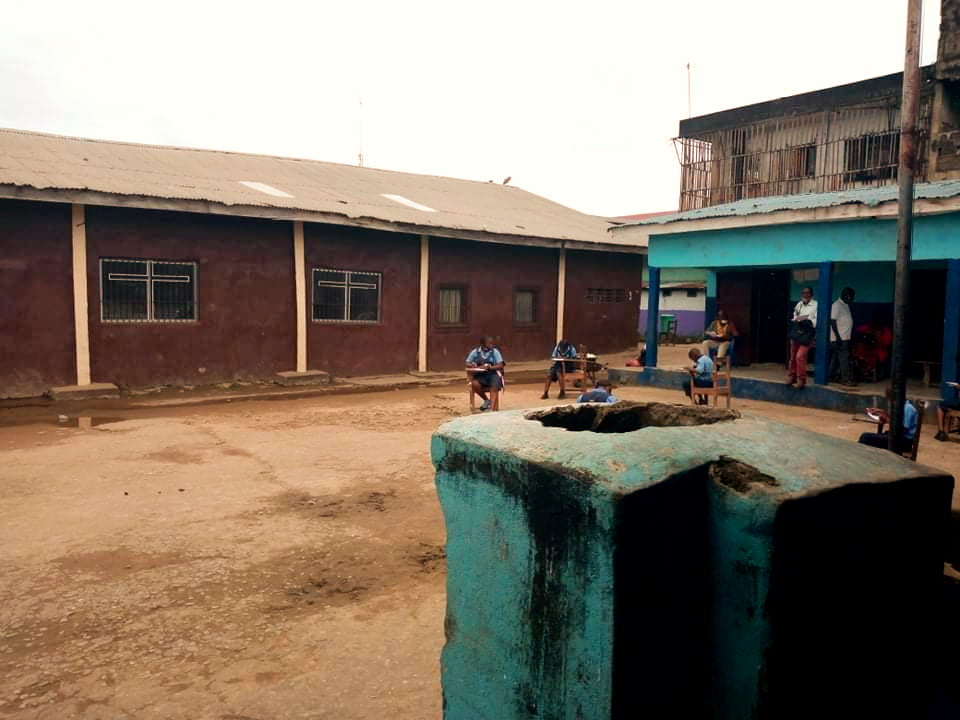
Abraham's school in Kakata
"My uncle opposed sending me back to the village because I was his sister's son, and he had promised that he would take care of me no matter what. So they decided to move to Monrovia in search of work for him. We settled in Bushrod Island Clara Town in Monrovia, and things became even worse for me. My uncle still could not find work, so I was no longer in school or able to go to church regularly." (page 20)
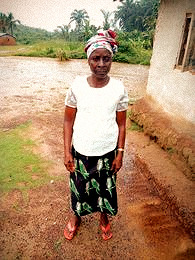
My mother
"As far back as I can remember, my mother talked about God and prayed with me every day. She told me how much God loved me, that I could trust Him no matter what, and that He had a special purpose for my life. At age six, when I started talking very well, my mom began taking me to her local church in the village, The Christ Will Christian Fellowship Church, where they often preached and taught in our local dialect, which I am really not good at speaking and, as you know, I had speech problems. "However, as mom saw my love and passion for wanting to know God and his Word, she started teaching me some of my favorite Bible verses like Psalm 34:11, which reads "Come, ye children, hearken unto me: I will teach you the fear of the LORD," and Proverbs 3:6, which says "Trust in the LORD with all thine heart; and lean not unto thine own understanding. In all thy ways acknowledge him, and he shall direct thy paths." She also taught me many Bible stories. Among these, my favorites were the story of Joseph who was sold by his brethren picturing Christ's betrayal, and the story of David and Goliath, which shows how, with trust and faith in God, we can overcome the fear of our enemies and defeat them with the help of God, no matter how big they are." (page 10)
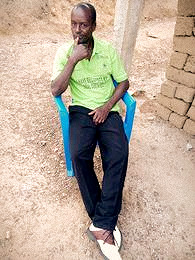
My father
"Growing up in the village was challenging because my father was not working. He had planned to return to his job with a construction company in the city after moving to Gbarma, but my mom was so sick, he had to stay home to take care of her, me, and my older brother and sister, who were still very young. So he lost his job." (page 3)
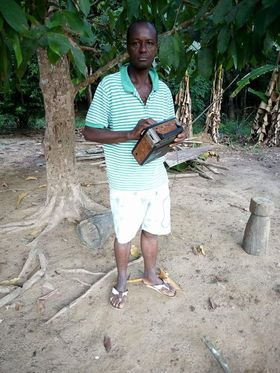
My father
"According to mom, who always told me about events that transpired when I was little, my father then decided to start farming in order to support the family. His dream of becoming a construction engineer was interrupted because he would not see his family suffer." (page 3)
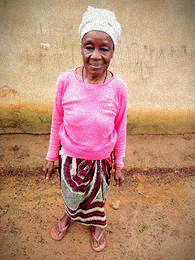
My grandmother
"Living in the village was not easy, but it was my home. In the village, there were beautiful people and places that I cherished, such as the rainforest, the woods where the monkeys often came to play, the Du Rivers where we often swam during the drying season, and amazing people such as my grandmother who told me beautiful stories. But I had to let go of what I wanted and understand that this was what my parents wished, something they saw as good for me." (page 18)
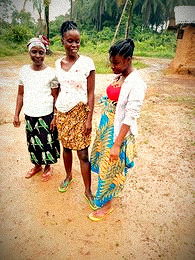
Mother, Famata, and Katherine
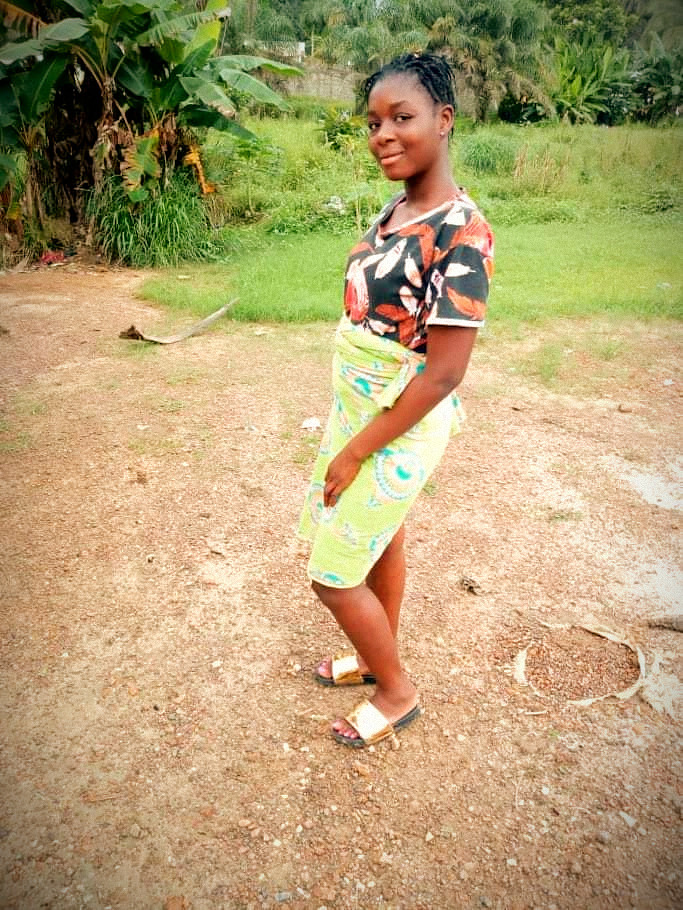
My sister, Baby Girl
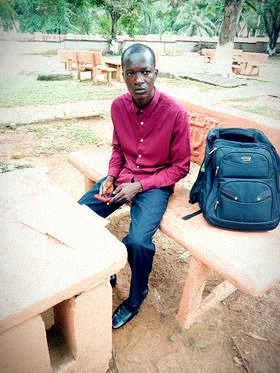
My big brother, Junior
"Later, they came to the room where we all were and asked us to call our family. As they came to me, I tried explaining to them my situation, that I had no way to contact my family. They said I was lying and gave me a good beating. After a while, one of them brought a phone so I look for any of my friends or family members on Facebook. As I begin to check, I could not find my big brother Junior. I told them none of my family members were on the Internet, but they insisted and kept beating on me. After two days, they brought the phone to me again, and I started checking for some of my friends from my church in Liberia. While checking, I found my friend Michael Meyers who had once taken me off the street when I was homeless and gave me work and paid my school tuition as well. I quickly sent him a friend request from their phone, briefly explaining what had happened to me. After three days, Michael responded and agreed to go to my uncle's house. Upon reaching them with the news, Michael was able to get my big brother Junior's phone number. Junior was now schooling in Monrovia. He quickly went to the village and told my mom and dad what had happened. Upon hearing the news, my mom suffered a heart attack and was taken to the nearby clinic. Dad called all his sisters and brothers for help raising the money. They were able to raise only $500 of the $2,200 my captors were demanding." (page 82)
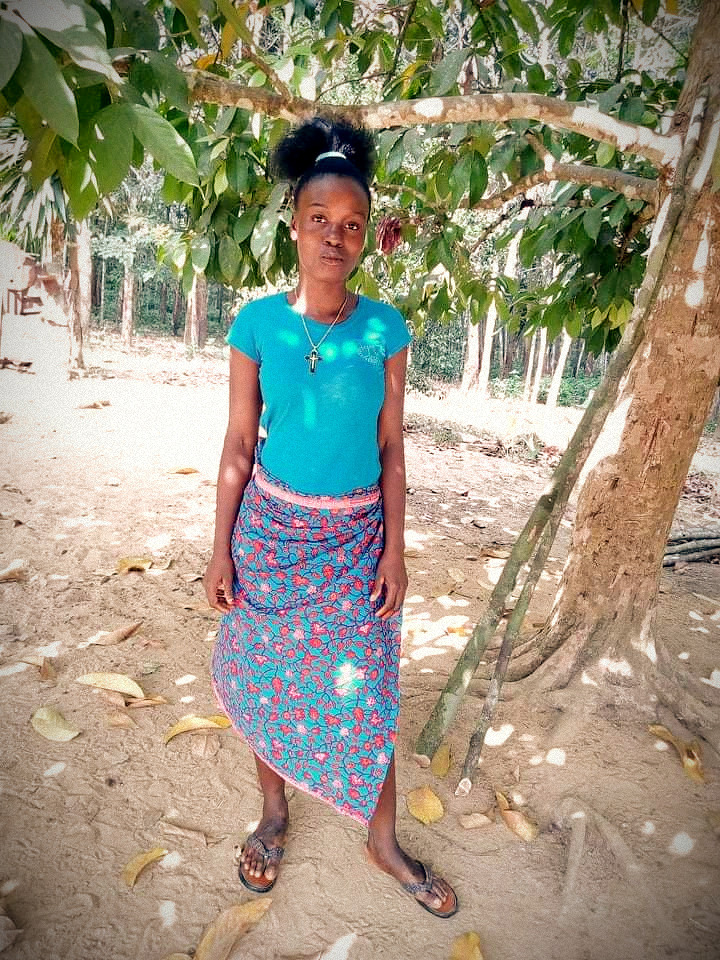
My sister, Famata
"I was at the church for about two years and nine months before I learned to walk. By the time I started talking, I was already five years of age according to my dad. During the time Mom and Dad were in Kakata, they begat another two children, and these were Famata, second to me, and Sarah, third to me, who is the fifth-born of my siblings. When my parents heard that I was now walking and able to talk, they decided to come back for me. For them, this was a great miracle and meant that God had some sort of big plan for me on earth. It took me time to know that my dad or mom were my real parents because they had left me for many years, and I had only known my grandmother and those who took care of me at the church..." (page 7)
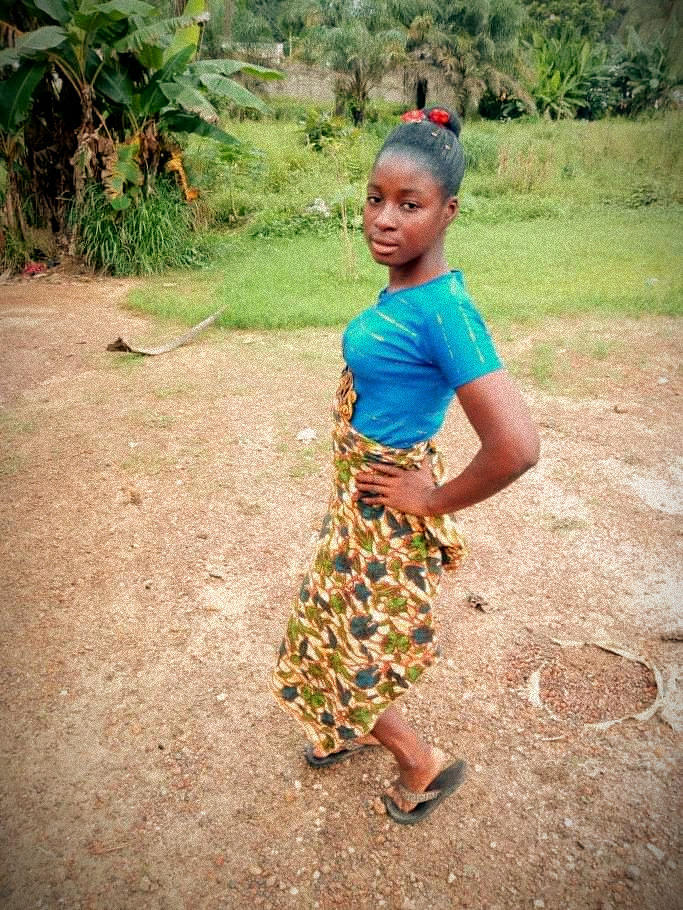
My sister, Katherine
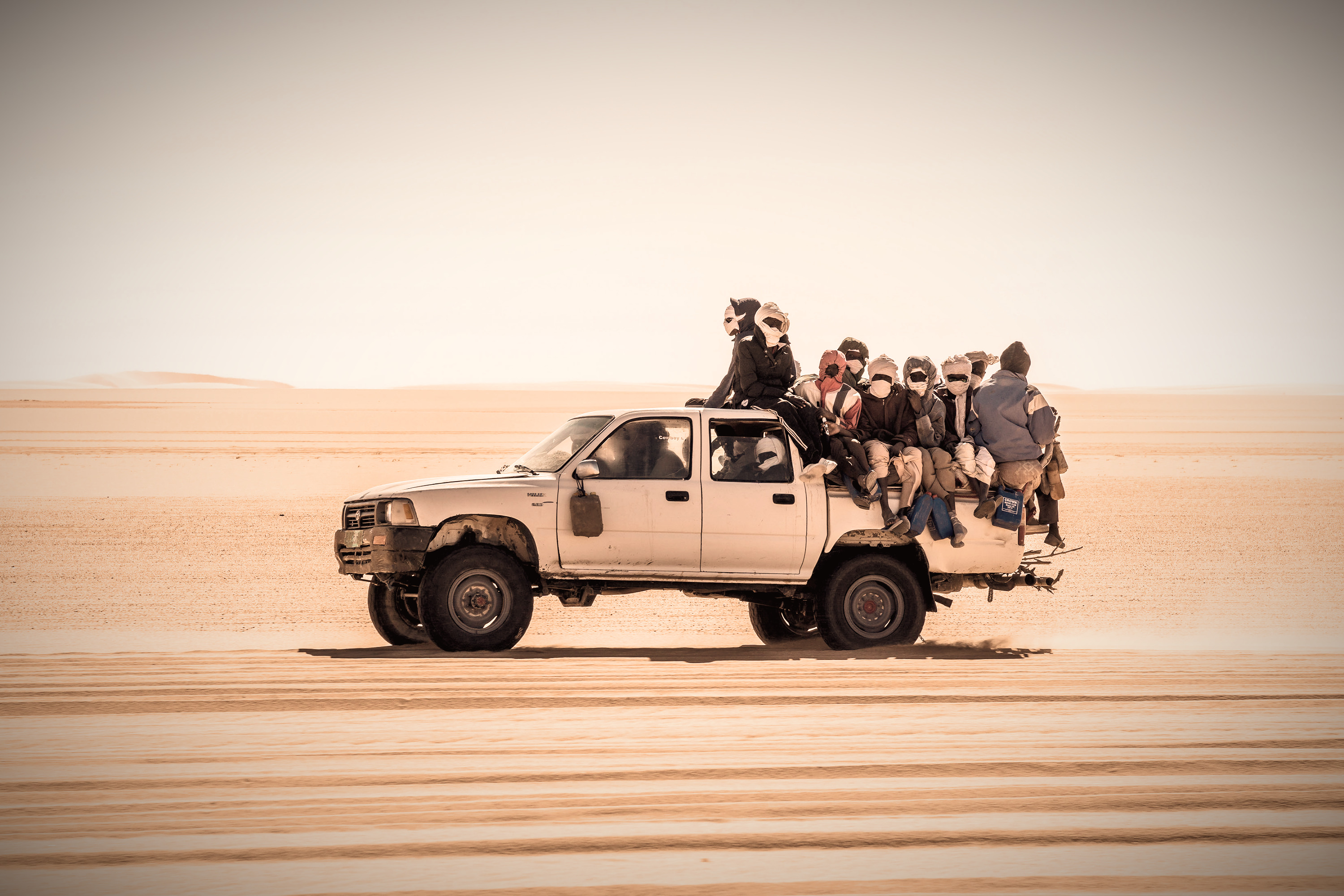
A pickup used for trafficking (Shutterstock)
"After two days in this place without taking a bath or brushing our mouths, they came and put us on the back of a pickup truck. There were more than 40 persons squeezed together, each holding a two-liter bottle of water. They made us sit with our backs against each other, our legs outside the truck, and a stick between our legs to hold. That stick was said to be your means of survival. If you are not strong enough to hold onto it when the truck was moving, you will drop to the ground, and if you drop, the driver will not stop for you. They tell you this in their Arabic language. People who understand Arabic will try to explain what is being said. Our interpreter said things like, "We are not a rescue team and so when you drop from the car, you will be left behind in the desert and will die, so hold onto your stick, only the strong survive." These words left everyone in fear. As we got on the truck, we had no idea how long this journey would take." (page 60)
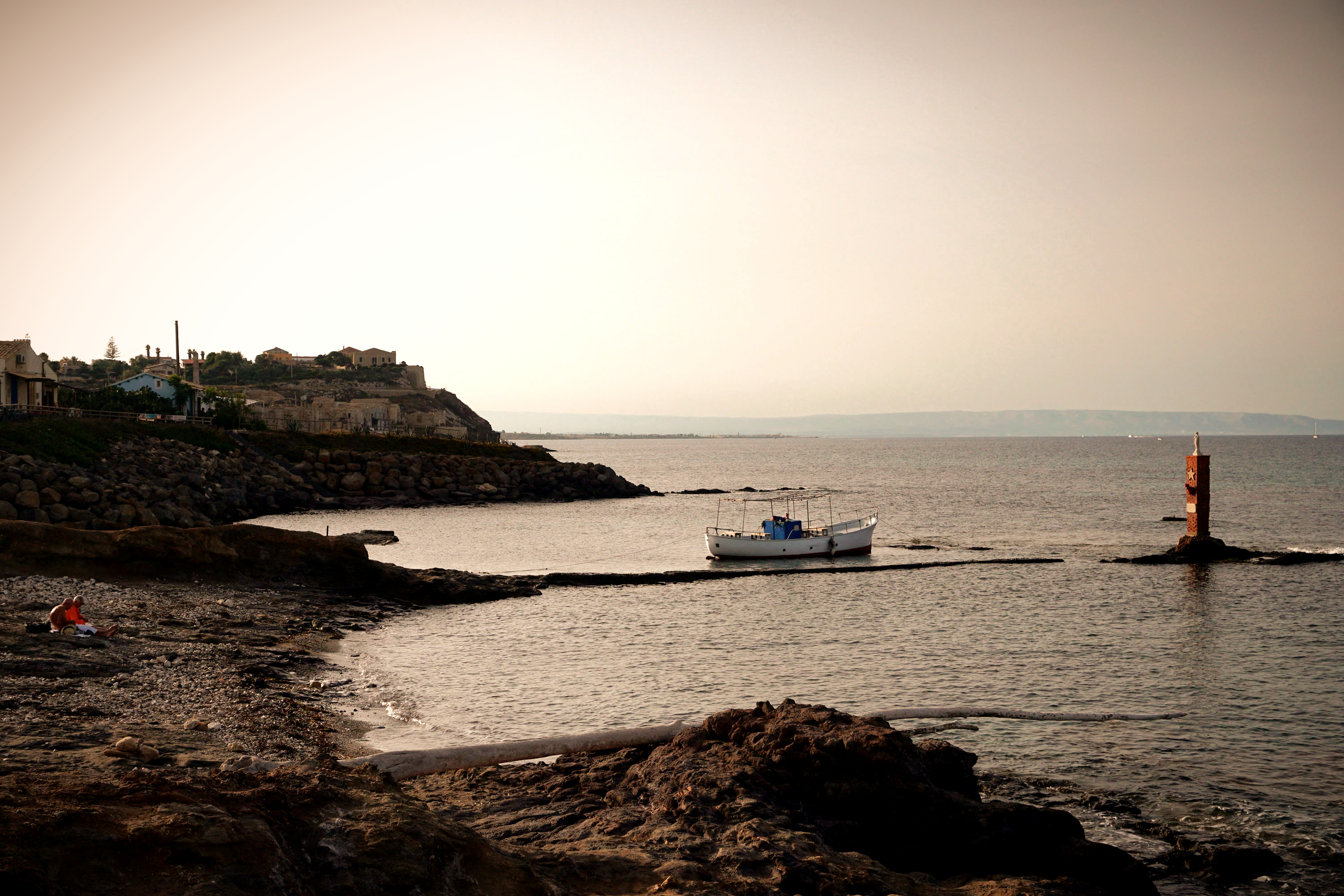
A seaport in Tripoli (Shutterstock)
"After traveling for about three hours, they took me to a site where I met hundreds of Africans from different countries whose goal was to cross over to Europe by boat. I spent about a week there with no food or money to buy any. I had to beg some of the people I met there to give me some of their food or leftovers if any. Staying here was like the times in Sabratha. We would be in the sun all day, with temperatures up to 115 Fahrenheit, and in the night, it got very cold. With no blanket to cover me, I spent most nights sitting near the cooking fire to try to stay warm." (page 106)
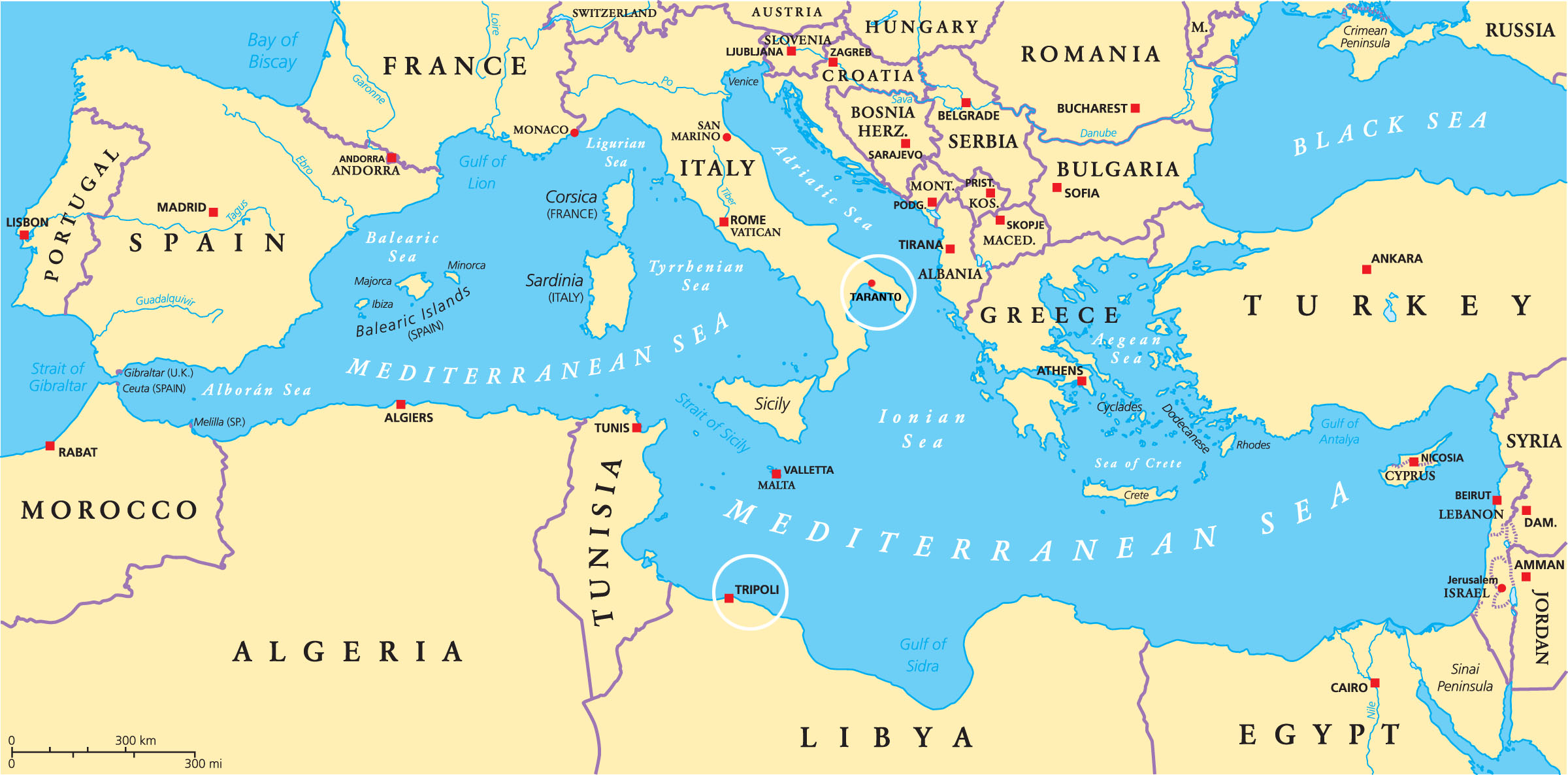
The Mediterranean Sea
"The night, which was Saturday June 25, 2016, was another time of my life that I had nothing more to do but rather trust God to save me. I had not been on the sea. I had only swum in rivers and that was when I was little, back in the village. The huge Mediterranean Sea was a scary sight to behold, and I became very frightened. Using a flimsy rubber dinghy to cross the Mediterranean Sea is very risky. When they put you in the dinghy, the Arabs remind you that your chance of survival is only 20% so if you are not careful, you will die on the sea. Also, they say things like "Be careful not to be caught by the Libyan police because if caught, you will be brought back and put into prison or even killed." Hearing these warnings from the Arabs themselves made me even more frightened about the crossing." (page 107)
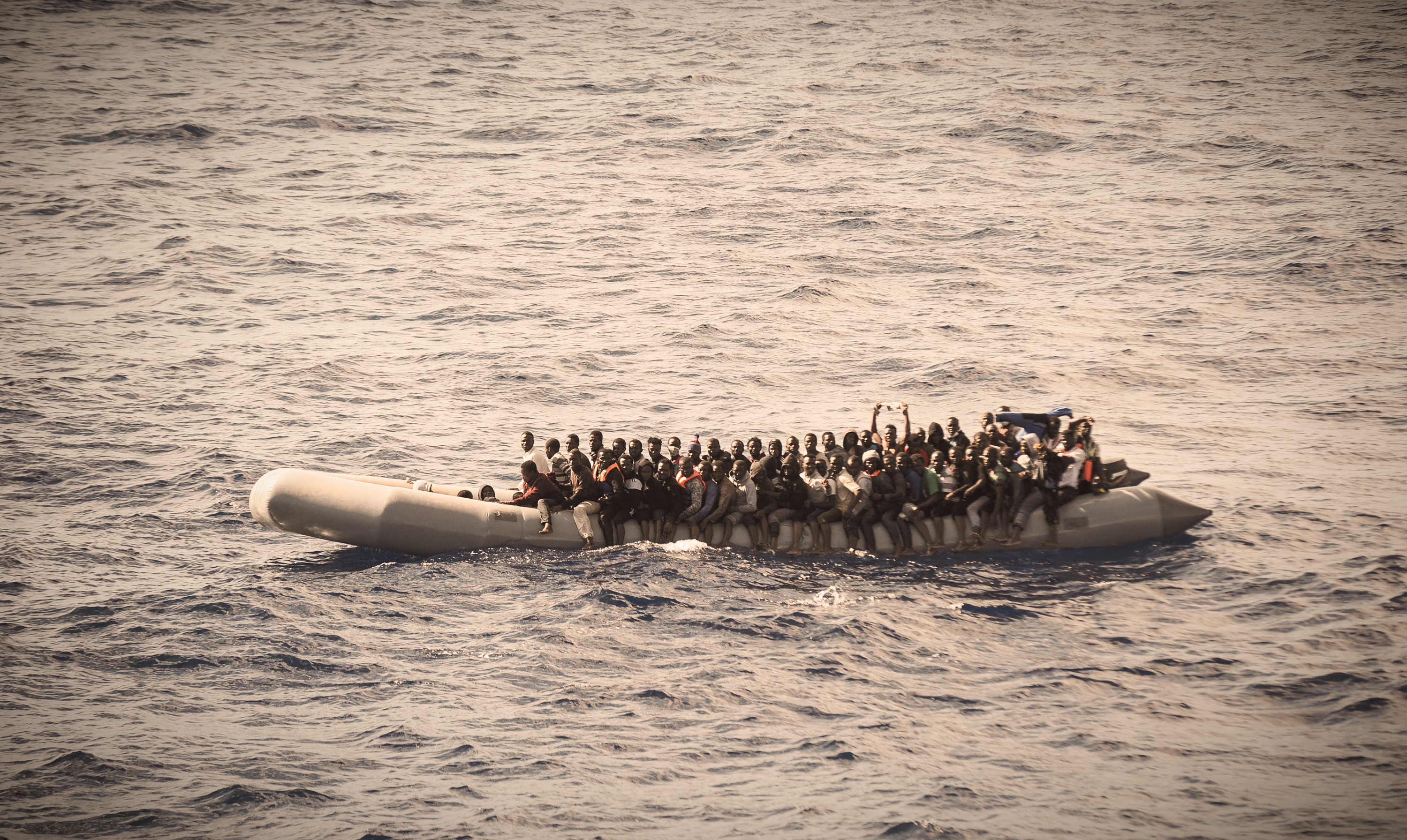
A raft filled with refugees (Shutterstock)
"As the time came for us to be put on the flimsy rubber dinghy boat, they brought about a hundred of us out with two Gambian boys who knew nothing about sailing a boat and another with a compass for direction. As we were brought out, they immediately instructed us to get on the boat. And after climbing in the boat it started leaking and they had to change it and give us a new one. After climbing on the new boat, at about 10 pm, we embarked on one of the riskiest journeys I ever had in my life. After we sojourned for about 45 minutes, we could no longer see any light except for the moon that was shining that night. We were all now alone, with everyone praying to their God. The Muslims began praying and calling on their god Allah while we the Christians began praying and calling on the Lord Jesus to save us. After three hours, many became seasick and began vomiting. After another four hours, the boys rowing the boat became tired, and a Nigerian man took over. Later a fight broke out and one of the ladies on the boat fell into the water. The men on the raft quickly grabbed her hands and pulled her back into the boat, but during this time, the compass dropped in the water, our only means of direction. I stood up in the boat the entire night, meditating on and reciting Bible verses for God's protection. About 6 am, our boat began leaking air. The water started coming in the boat, and both women and men began crying and screaming for help. In the process of this, we noticed a ship but were not sure if it was a rescue ship from Europe or if it was a Libyan ship. We all became afraid and stopped screaming." (page 112)
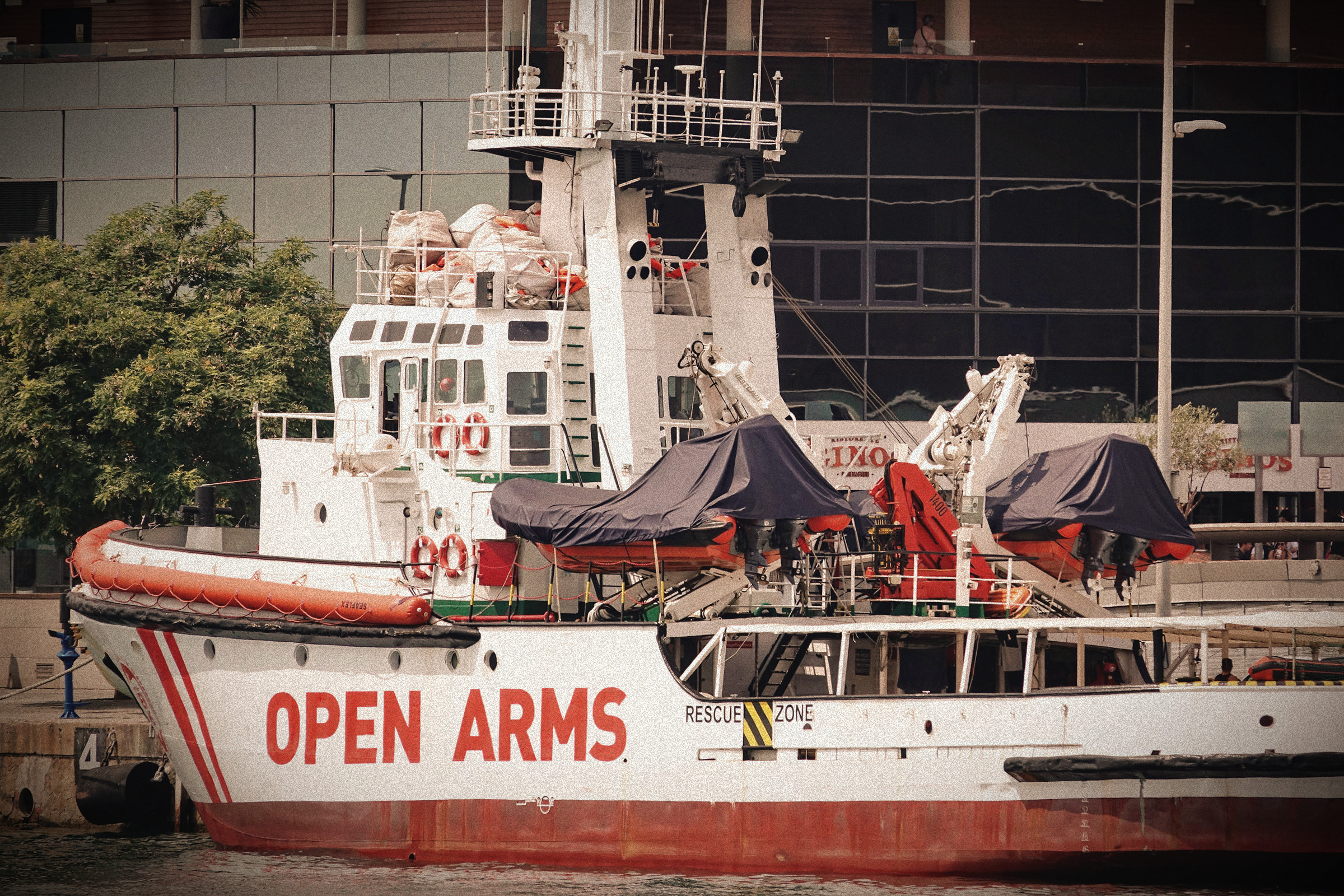
A rescue ship (Shutterstock)
"(Back in Libya at the crossing point, we were advised to not call out for help if we see a ship until we are sure it is a European rescue ship.) For this reason, we all kept quiet even though a lot of water was coming in our boat. It would have been better to die in the water than be rescued by the Libyan Coast Guard. (That would mean a constant suffering and pain at the hands of the Libyan soldiers as they often abuse women and children.) We saw the ship come towards us, which led to more fear and panic. One of the guys jumped into the water to avoid being taken by the Libyan soldiers. However, it wasn't a Libyan Coast Guard rescue ship. It was a Spanish rescue ship. As they approached us, they spoke in both English and French asking if we could understand. Upon hearing them tell us to stay calm and that they have come to rescue us, we all began to shout with joy and a heart of thanks to God in our own languages and tongues." (page 114)
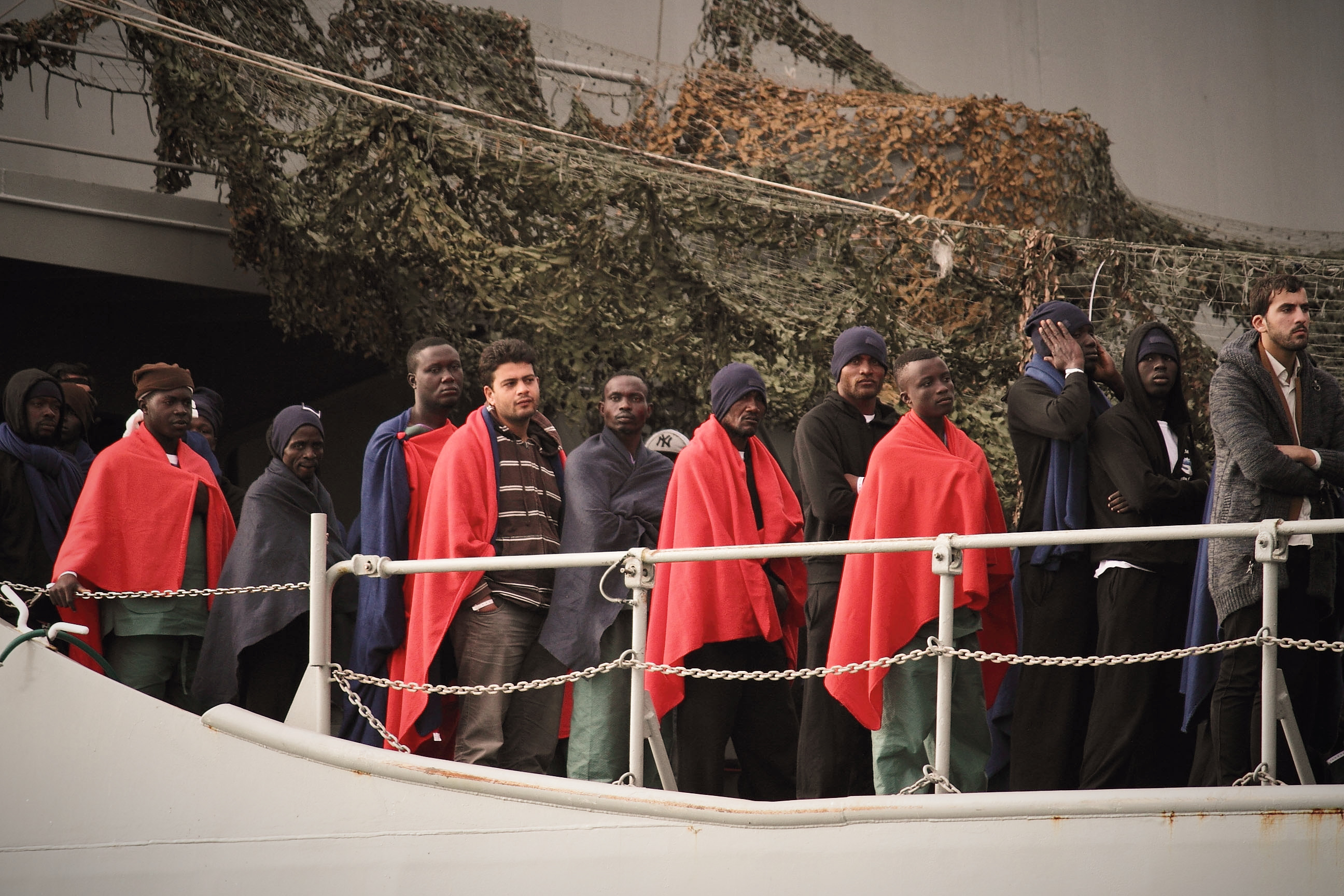
Returning safely to shore (Shutterstock)
"On the 28th of June 2016 we finally landed in Taranto (Italy) and were turned over to the Italian government. As we came off the ship, we were taken to different emergency camps. Teens and underage youth were taken to one place, while the adults were taken to another. Once we entered the emergency camp, they registered us and gave us clothes, a toothbrush, soap, and shampoo for our shower, and assigned us to a bed inside a tent. During my first night in the camp, I could not sleep due to nightmares. The moment I closed my eyes, I kept seeing and re-living all the persecution and harsh treatment I had received all along the way from Liberia..." (page 117)
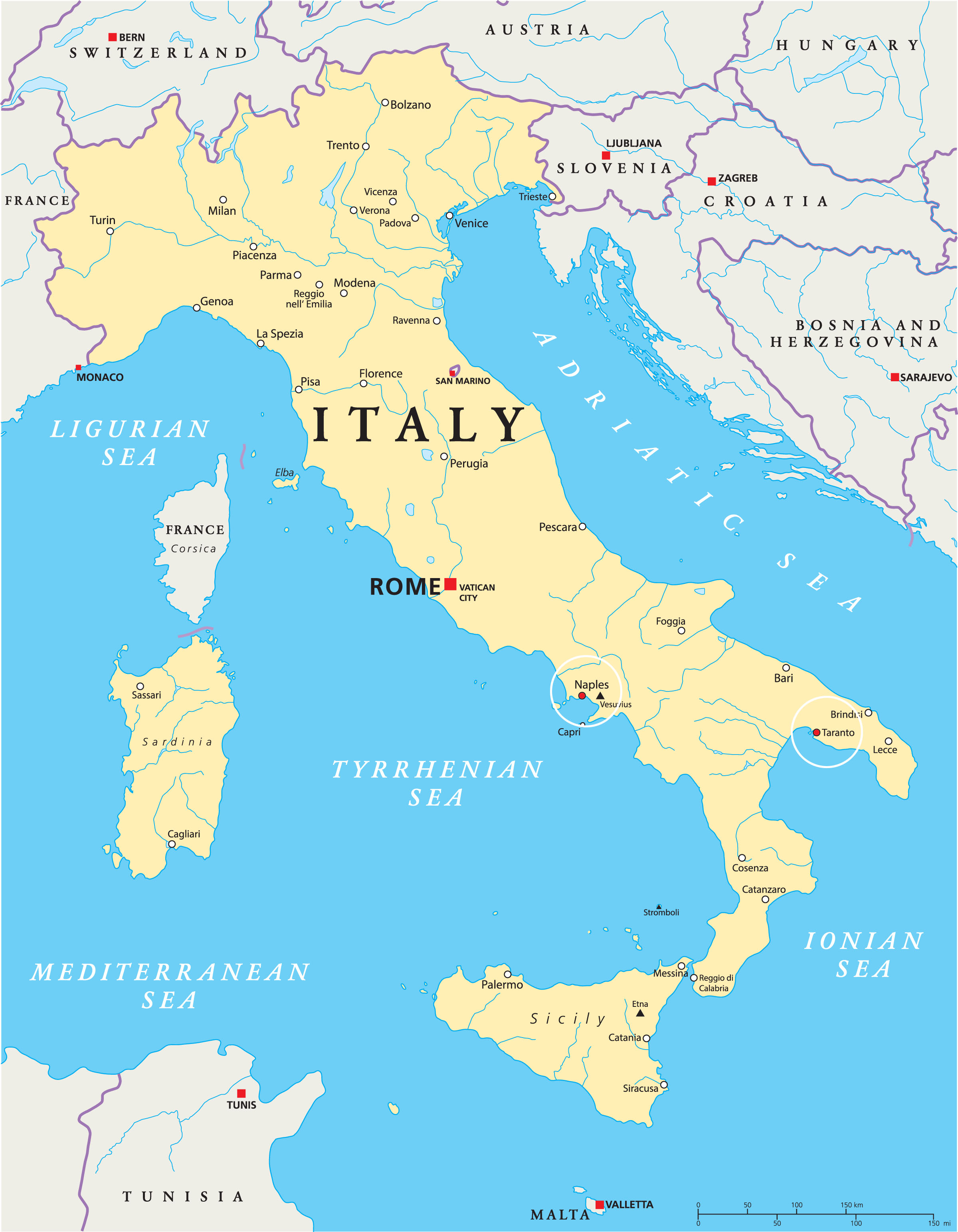
From Taranto to Napoli (Naples)
"In March of 2018, I was finally able to move over to Napoli. I was now 18 years old. I had no money to rent my own house, so I was taken in by a brother from the church named Michael. After spending a week with Michael, I moved in with another generous brother named Isaac. While in Brother Isaac's house, I began looking for job so I could find my own place to stay. Unfortunately, I couldn't find a job due to the difficulty of finding work in the area." (page 122)